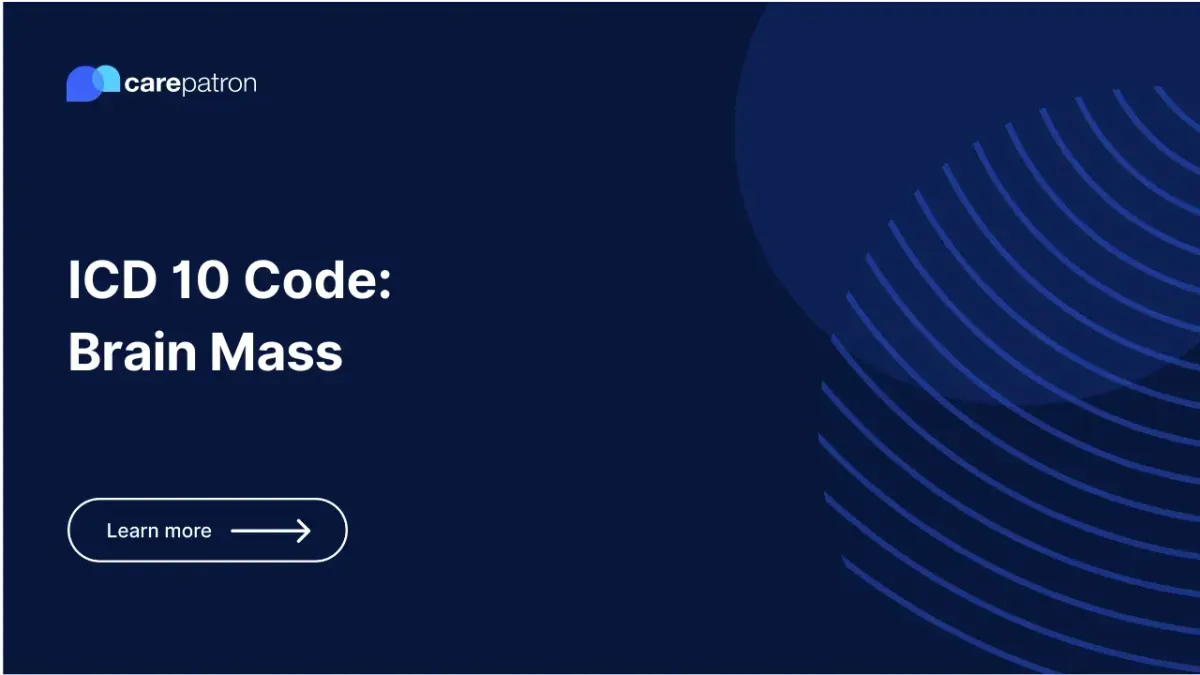
Brain Mass ICD-10-CM Codes
Learn about the brain mass ICD-10-CM codes you can use through this guide.
Use Code
Commonly asked questions
Yes, brain masses can cause neurological complications depending on their location and size. These complications may include seizures, sensory or motor deficits, cognitive impairments, or changes in personality or behavior.
As the causes of brain masses are multifactorial, prevention strategies are limited. Regular medical check-ups and early detection of any potential symptoms may aid in early intervention and management.
The long-term effects of brain mass treatment can vary depending on the specific treatment modality used and individual factors. Some individuals may experience residual neurological deficits or side effects from treatments such as radiation or chemotherapy.
EHR and practice management software
Get started for free
*No credit card required
Free
$0/usd
Unlimited clients
Telehealth
1GB of storage
Client portal text
Automated billing and online payments
